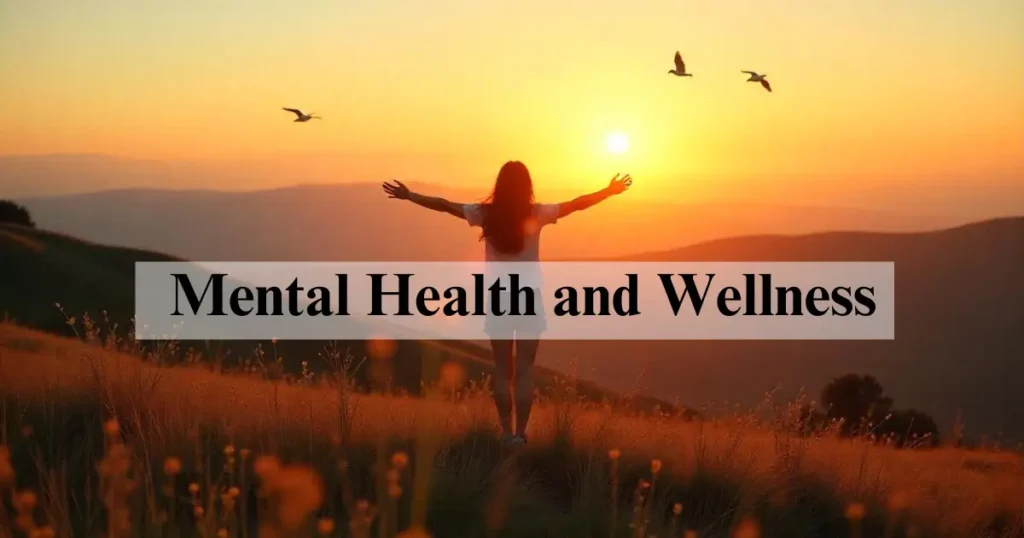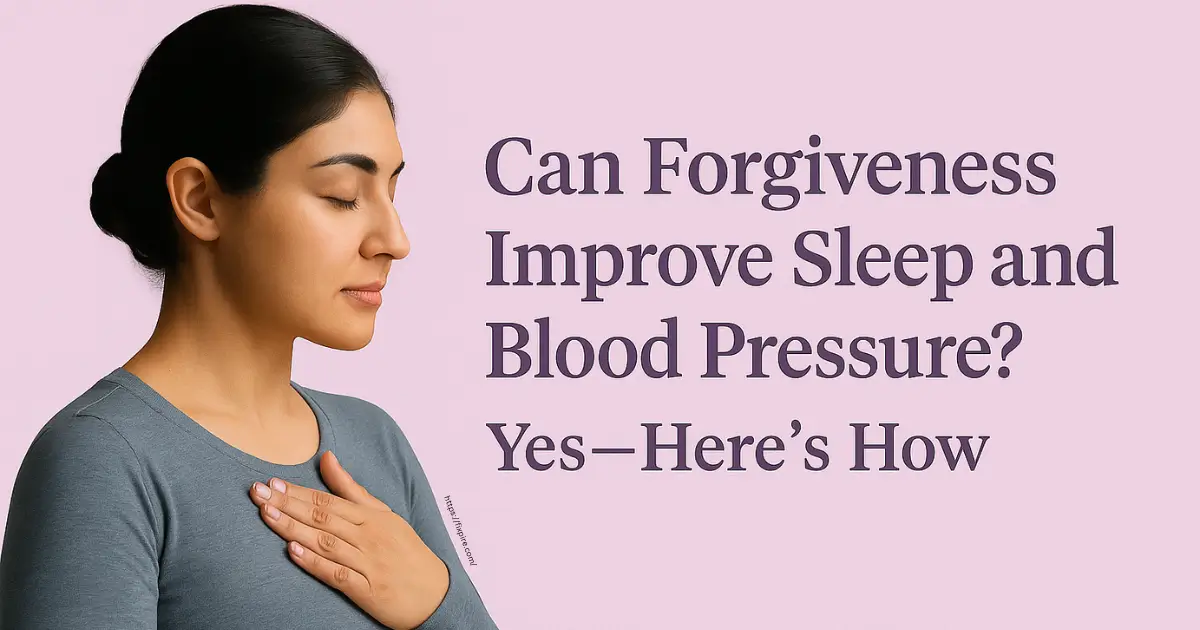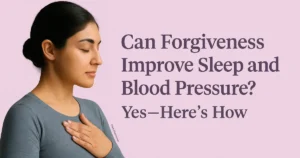Everyone experiences emotional pain. Whether it’s a harsh word, a betrayal, or a broken promise, we all carry moments that sting long after they are over. Often, we hold onto these experiences, replaying them like an old movie in our minds. But have you ever wondered why forgiveness improves mental health? The answer is simple: forgiveness is not about approving harmful actions. It’s about releasing the hold those moments have over us. When we let go of resentment and anger, we make space for joy, peace, and emotional healing. In this post, we will explore the benefits of forgiveness for mental health, uncover how forgiveness improves mental health, and dive deep into the ways forgiveness and mental well-being are powerfully connected. Most importantly, you will learn how forgiveness can help you live with a lighter heart and a clearer mind.

Why Forgiveness Improves Mental Health
Think of forgiveness like opening a window in a stuffy room. When you hold onto anger and resentment, it’s like locking yourself inside with stale air. But forgiveness lets in fresh, clean air that helps you breathe again. It clears the mental fog and lets you live in the present.
Let’s explore the top reasons why forgiveness is good for mental health and why choosing forgiveness is one of the best decisions you can make for your well-being.
1. Forgiveness Sets You Free from the Past
It’s easy to feel trapped by our past hurts. We replay situations, revisit conversations, and reimagine outcomes. But what does that really achieve? More stress. More sadness. More mental exhaustion.
When you choose forgiveness, you release yourself from that mental prison.
Here’s what forgiveness helps you let go of:
- Bitterness that clouds your thoughts.
- The emotional weight of old arguments.
- Constant overthinking about “what if” scenarios.
- The pain of betrayal that holds you back.
Instead of carrying yesterday’s pain into today, forgiveness helps you create space for peace, creativity, and joy. And that’s why it’s such a powerful mental health tool.
2. Forgiveness Reduces Stress and Anxiety
Unforgiveness keeps your body in a constant state of tension. You might notice:
- Tight shoulders.
- Sleepless nights.
- A racing heart.
- Endless worrying.
This happens because holding onto anger or resentment triggers your body’s stress response. Over time, this drains your mental energy and wears down your emotional health.
However, when you forgive:
✅ You calm your nervous system.
✅ Your mind begins to slow down.
✅ You feel lighter and more relaxed.
✅ You reclaim your inner peace.
The benefits of forgiveness for mental health go far beyond emotions. They show up physically too—through better sleep, lower blood pressure, and fewer headaches.
Forgiveness doesn’t just heal your heart. It gives your body a break, too.
3. Forgiveness Improves Emotional Stability
Have you ever felt like your emotions were running your life? One minute you’re fine, and the next, you are spiraling because of something that reminded you of an old wound.
When you hold onto hurt, your emotions stay on high alert. Small triggers can lead to big reactions. But with forgiveness, you regain emotional balance. You stop reacting and start responding thoughtfully.
Forgiveness helps you:
- Manage emotional triggers.
- Stay calm in difficult situations.
- Focus on solutions instead of problems.
- Build stronger, healthier coping skills.
This emotional stability supports forgiveness and mental well-being by helping you stay grounded, even when life gets tough.
4. Forgiveness Heals Your Inner Wounds
Emotional wounds are often invisible, but they impact everything—from your thoughts to your behaviors. Left untreated, these wounds fester, turning into self-doubt, fear, and even depression.
But forgiveness works like emotional medicine. It doesn’t erase the past, but it helps close the wound.
How forgiveness heals:
✅ It allows you to acknowledge the hurt without staying stuck in it.
✅ It helps you release the pain in healthy ways.
✅ It shifts your focus from “I was hurt” to “I have healed.”
✅ It empowers you to move forward with strength and wisdom.
This deep healing is one of the most overlooked mental health benefits of forgiving others, yet it’s one of the most life-changing.
5. Forgiveness Rebuilds Relationships
Healthy relationships are crucial for mental health. But resentment and unresolved conflict build barriers. The longer we hold onto hurt, the harder it becomes to rebuild trust and connection.
Forgiveness is the key to restoring these relationships.
When you forgive, you:
- Open the door for honest conversations.
- Remove the walls of anger and silence.
- Build empathy and understanding.
- Strengthen your emotional support system.
You don’t have to forget what happened, but forgiveness makes room for growth. When you heal together, your relationships become stronger than ever. This strengthens your overall mental health by giving you safe, supportive spaces to thrive.
6. Forgiveness Boosts Self-Love
Sometimes the person we struggle to forgive the most is ourselves. But self-forgiveness is just as important as forgiving others.
Without self-forgiveness, we carry guilt, regret, and shame. These emotions are heavy and deeply damaging to our mental health.
When you practice self-forgiveness:
✅ You learn from your mistakes.
✅ You release self-judgment.
✅ You develop self-compassion.
✅ You regain confidence in yourself.
True mental wellness isn’t just about forgiving others; it’s about learning to love and forgive yourself, too.
7. Forgiveness Unlocks Joy
Joy and resentment can’t coexist. If you are holding onto anger, it blocks the happiness you deserve. When you let go through forgiveness, you make space for joy to flow back into your life.
Forgiveness leads to:
- Greater appreciation for the present.
- More moments of laughter and peace.
- A deeper sense of purpose.
- Excitement about the future.
At the end of the day, why forgiveness is good for mental health comes down to this: it helps you find joy again. And joy is the fuel that keeps you mentally and emotionally strong.
How to Start Practicing Forgiveness Today

If forgiveness feels impossible, start small. It’s okay if it doesn’t happen overnight. Here’s a simple process to guide you:
✅ Reflect on what hurt you. Write it down. Be honest about how it made you feel.
✅ Decide to let it go. This doesn’t mean forgetting. It means choosing peace over pain.
✅ Replace resentment with compassion. Remind yourself that everyone is human. We all make mistakes.
✅ Focus on your future. Forgiveness is about where you’re going, not where you’ve been.
Conclusion: Set Yourself Free Today
You deserve to live a life free of mental clutter, heavy emotions, and constant overthinking. Now that you understand why forgiveness improves mental health, it’s time to take action. Let today be the day you release what no longer serves you. Forgive—not because they changed, but because you are ready to move on.
So, take a deep breath. Reflect. Release. And start creating the joyful, peaceful, mentally healthy life you were meant for. And if this inspired you, share this with someone who needs to hear it. Together, we can create a ripple effect of healing—one act of forgiveness at a time.











